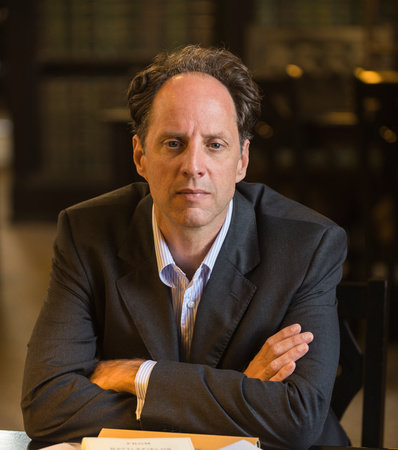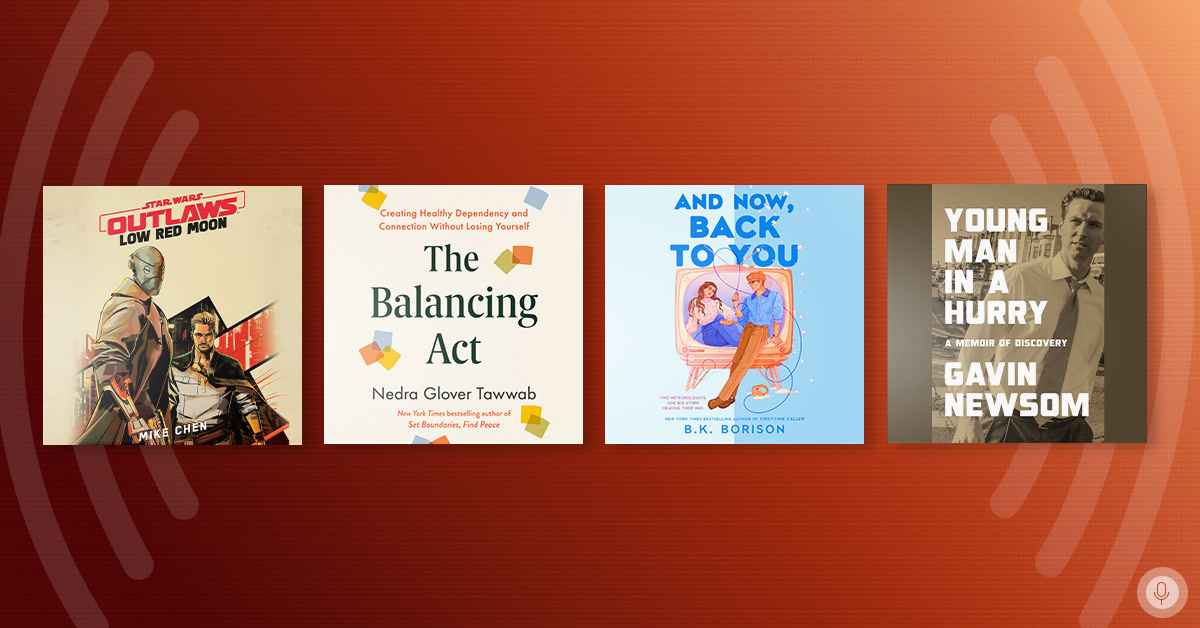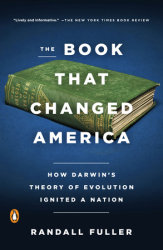On New Year’s Day 1860, four of America’s preeminent intellectuals gathered for dinner and a discussion about a controversial new book: Charles Darwin’s On the Origin of Species. Their conversation, and others like it, would go on to have enormous implications for a nation on the verge of civil war. In The Book That Changed America, author Randall Fuller explores how and why Darwin’s work transformed the political and cultural landscape in ways that we’re still dealing with today.
In this interview with Fuller, we discussed the literary merits of Darwin’s On the Origin of Species, the book’s role in the abolitionist movement, and our contemporary, sometimes troubled, relationship with the theory of natural selection.
PENGUIN RANDOM HOUSE: How did you come to be involved with Darwin’s work?
RANDALL FULLER: I got involved with it by first wanting to write about Henry David Thoreau. I encountered a sentence in a biography about him that said he had read Darwin’s On the Origin of Species; that he was one of the first readers of it in America. That stood out to me because I had always thought of Darwin’s book as really not making much of an impact until after the Civil War. I also knew that Thoreau was brilliant enough, and plugged into the natural world and science enough, that if he read it then he would have understood it, so I kind of came around through the back door of literature to look at the book.
SR: Are there literary merits to the book? Is it something we should consider in that context?
RF: I think that there are for a couple of reasons. One is that this was a time in the development of science where it’s not really specialized yet, or at least it’s not as specialized as it will become. Scientists are writing, in many ways, like good essayists or novelists are writing. At the same time, poets and other creative writers are really interested in scientific development. Mary Shelley and various other people like that are writing romantic poems that engage in scientific ideas.
Darwin fits right into that mode: He had written a popular travelogue twenty or thirty years earlier that became a best seller. He was a really good writer, I think. On the Origin of Species has a certain elegance to the actual sentence structure, and the way that he develops his argument. I write in my book that it reads kind of like a novel: that you want to see what happens next. It doesn’t have any human characters, but Darwin makes these plants and animals come to life much like the characters in a novel.
SR: Darwin didn’t come to his ideas out of nowhere, though, right?
RF: There was a lot of interest in the idea of evolution: of one species developing from another. In fact, Darwin’s grandfather, Erasmus Darwin, wrote a really long and ultimately somewhat tedious poem about evolution fifty years or so before Darwin’s book. What Darwin came up with that was new and different was natural selection: this idea that purely physical processes lead to one species branching off another like the leaves of a tree.
SR: What were some of the social and scientific changes occurring in America when this book came out? We take a lot of things for granted about how the natural world works now, but what did we know then? What did we not know?
RF: In 1860, we were in such a transitional period as regarding those questions, especially in the united states, because prior to the Civil War, the dominant intellectual strain was Transcendentalism. The Transcendentalists, like Thoreau, and Emerson, believed that God suffused everything in nature; that nature is a vocabulary he spoke through. Many of the things that occurred in the natural world were attributed to divine fiat. At the same time, especially in the 1840s and onward, you have the beginnings of the professionalization of science. At Harvard and other institutions of higher learning, you have scientists who were beginning to look more carefully at natural processes and charting the way that things occur in nature. Even before Darwin’s book arrived, the nation was poised for a conflict between the old way of looking at nature and a new way.
SR: Is this in any way similar to the clash between Romanticism and Enlightenment era values?
RF: It is, and that’s a really nice way of thinking about it because you have what had been this reign of Romanticism through Emerson and others, and an older Enlightenment era interest in empirical evidence that was beginning to reassert itself through science.
SR: Was On the Origin of Species something you could find very easily?
RF: In general, and within the context of the time, it spread like wildfire. Initially, Darwin sent just three copies from the first printing to the United States, and only one of them got read all the way through. That’s the one I focus on. It was passed from hand to hand to a number of people during the middle of the December of 1859, and by January 10 — about twenty-five or twenty-six days later — a pirated American edition appeared in New York. There were three editions of that in 1860 alone. If you consider the population at that time, On the Origin of Species spread pretty quickly and was a fairly successful book within the United States.
SR: The copy of the book you focused on was taken to a party.
RF: Yes, it was: a wonderful dinner party on New Years Day, 1860, that was attended by four people: Henry David Thoreau, Bronson Alcott, the Transcendentalist philosopher and father of author Louisa May Alcott, Franklin Sanborn, who was embroiled at the moment in the John Brown Affair and was one of the sponsors of the raid on Harper’s Ferry, and a guy named Charles Loring Brace, who was a child welfare reformer. Brace had gotten the copy of the book from a fifth guy, Asa Gray, a botanist at Harvard. They sat around the table and discussed the book, as well as abolition, late into the night.
SR: This is a great way to look at how the book changed things, as you had several fields represented at the party: literature, religion, child care, the Abolitionist movement. What would I be surprised to know?
RF: The one that seemed most urgent in the United States at the time was the way that Darwin’s book fit into a discussion about race and slavery. The nation was deeply divided and anxiously poised for what would become a devastating Civil War. The predominant theory of racial difference at that time was one espoused by a group of people known as the American School of Ethnologists. They argued that God had created white people in Europe, red people in the Americas, and black people in Africa. There were several arguments about that, and they always created a hierarchy that placed white people at the apex. One of them was that God had created all of the races at the same time, but that some of them had degraded over time. Another was that God had created black people as a “first draft,” and had then created white people. As absurd and bizarre as that sounds to us today, that was the premiere scientific theory about racial difference in the United States through the 1850s. Not surprisingly, it was embraced by pro-slavery sympathizers. Darwin’s book made the argument that all plants, animals, and people can be traced to common origins. The four gentlemen who sat around the dinner table on January 1 and discussed the book were all vehement abolitionists who saw Darwin’s book as arguing that all of the races had shared ancestors, and were therefore brothers and sisters.
SR: Darwin was ahead of the curve regarding the African origins of humanity.
RF: Darwin was ahead of the curve in many, many things, largely because he was an incredibly astute observer of the world around him. He had a mind that looked at data and made connections in ways that others seemed not to do at the time.
SR: Were there some things that shook up society beyond the racial aspect?
RF: The other real shot across the bow was the one that is still with us: the religious controversy. The religious press was very robust at the time, and theological thinkers almost immediately expressed concern that Darwin’s theory, by portraying change in nature as a result of physical processes, takes the creator out of creation. Especially worrisome to those thinkers was the idea that perhaps humans were not a specially chosen species that existed between animals and angels, but were just another kind of animal that had adapted in different ways.
SR: Could we look at this and see the beginnings of the culture clash between religious conservatives and liberal progressives?
RF: Yes, I think we can, but I would also want to point out that in 1860, when people were first encountering this book, the nation was extremely religious, but it was not a nation of literal readers of the bible. That is to say that in 1860, most people who went to church didn’t read the book of Genesis literally. They didn’t believe that the world was 4,000 years old, or that it had been created in seven days because there was so much geological evidence coming out, and also the work of the “New Critics” in Germany who were doing textual analyses of the Bible. I think that a really literal reading of the Bible is actually something that came as a result of Darwin’s theory: It was a reaction to what the book did, which was to de-center people from God’s creation.
SR: There were attempts by some theologians to integrate these two ideas together.
RF: The basic argument for this, and it was one that Asa Gray subscribed to, was that you could accept natural selection as doing what Darwin says it does, which is to create new species and contribute to diversity of plants and animals around the world, but also imagine that this was how God creates things. It was easy for some thinkers to integrate these two ideas.
SR: Were there critics who said that this was impossible?
RF: Yes. Bronson Alcott is an example of that. He believed that divinity infused every particle of nature, and so that ultimately change occurs in nature because God wills it, and not because he set into motion natural processes. I’m tempted to fall back on William James, who said that optimism and pessimism aren’t really philosophical positions: they’re positions of temperament. In some ways, I think the same thing: whether you’re able to integrate religion and science, or find them fundamentally at odds, seems to be a temperamental trait as much as an intellectual one.
SR: We’ve spoken about science and religion, but what about the arts? How did Darwin’s book change literature?
RF: My own book focuses on this very limited time—1860—but after the Civil War, Darwin’s book had an enormous impact on literature, especially on what would become known as literary naturalism: a school of writers that included people like Jack London and Stephen Crane, but also Edith Wharton and Theodore Dreiser, all of whom saw human life as being driven by larger biological forces rather than social forces. That way of thinking about humans and the lack of human agency is really impossible without Darwin’s theory, I think.
SR: I wonder if his theory made it possible for people to think beyond Earth, and enabled them to think about science differently. Could it have made fantastic literature possible?
RF: That’s a really great question, but I’m afraid I don’t have an answer per se. I will tell you that as I was reading Thoreau’s journals from this period, there are a couple of points in which he speculates about what people on other planets might be thinking and doing. Darwin spurred that a little bit because he talked about processes of life, but I think that it’s also due to the discoveries of astronomy at this time. People were realizing that the stars are suns, and presumably, they must have satellites that could support life like this one does.
SR: Where are we with Darwin today? Are we that much different that folks were right after the books publication? Have we come along in any way?
RF: That’s the $64 thousand dollar question in a way. In the scientific community, Darwin’s ideas are not only accepted, they’re also constantly being refined and bolstered by new data. On the other hand, culturally, I think the United States is less open to Darwin’s ideas, especially as they pertain to human origins. I think we’re less open now than we were in 1860. Many interviewers keep bringing up this Pew research that I’ve not had time to investigate myself, that only a small percentage of Americans believe that humans originated from the process of natural selection. I would venture to say that by the end of 1860 it was higher than that. It’s a real mixed bag: It’s as if the two poles of science and religion and social belief are farther apart now than they were 150 years ago.












